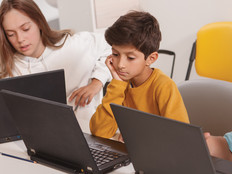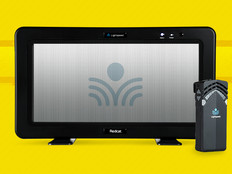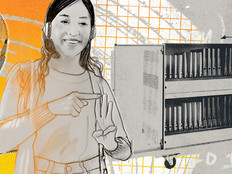Help Your Students Build Online Confidence Through Improved Digital Literacy
Many young people (and adults, for that matter) are in the dark when it comes to navigating the Internet. The trouble is, they don't realize it. They inherently trust their ability to find what they're looking for, to communicate with others and to accomplish tasks both for work and for pleasure.
But confidence in one's online prowess isn't the same as competence. Online competence comes with achieving digital literacy – an imperative 21st century skill touted by educators, politicians and policymakers alike.
Digital literacy is an umbrella term for a set of critical-thinking skills that both guide our Internet explorations (as a roadmap might) and influence our relationship with information – the way we organize our work, school, family and social obligations around the digital devices that have transformed how we think and how we live.
Both aspects of digital literacy are worth exploring, but for students in particular, developing a roadmap for navigating the Internet effectively is especially critical. The ability to do that, after all, affects everything we do with the information we find there.
Blind Faith?
Information flourishes online and can be found in many different forms on many different kinds of websites. It can be persuasive, quantitative, image- or sound-based, verifiable, unverifiable, profound or sometimes a mashup of content from a variety of sources that was remixed to create something new.
This is the essence of our digital culture. Knowing that, how can we possibly sift through and make sense of it all?
Search engines are the roadmaps most people rely on when they need to find something online. But search engines aren't critical-thinking tools; they're data organizers. The algorithms used to order the results of a web search on Google, for example, are based on such factors as employee knowledge, marketing, collective intelligence and optimization techniques.
The results aren't necessarily ordered by quality or truth. Thus, users must rely on their own critical faculties to judge each website and the quality of the information contained therein.
Recently, the International Journal of Communication published a report by Northwestern University researchers who found that users put a great deal of trust in search engines as information gatekeepers. An accompanying survey showed that more than 25 percent of college students believe that the first website listed by a search engine is the most credible.
If those students understood how search engines compile information and had the skills to critique the kinds and purposes of information they find at various types of websites – if they were digitally literate, that is – they wouldn't assign worth to information based solely on where it appears on the (search engine) map.
Also in this Issue
For more on digital literacy and critical thinking, see “Proceed with Caution.”
Flipping the Switch
The Learning About Multimedia Project (or The LAMP, as it's more commonly known) focuses on the broad range of digital literacies everyone ought to possess. Its goal is to help communities build healthy relationships with all forms of media.
We're especially concerned that young people – and the adults in their lives – become digitally literate in this age in which the Internet has opened up a vast terrain of information and learning opportunities, while at the same time it has helped to weaken critical thinking about the quality and credibility of that information. And so we develop community-based educational programming about media literacy with the hope that one day, media literacy will be seen as the critical requirement to understanding the world and our place in it.
Lighting the Way
Educators can help students build a digital literacy roadmap by consulting these and other online resources:
- “A Beginner's Guide to Going Online,” from The LAMP
- “How to Search the Web,” from findingDulcinea
- “Evaluating Web Sites: Criteria and Tools,” from Cornell University Library
- “Website Evaluation” video, from Ohlone College Library
- “Kathy Schrock's Guide for Educators,” critical evaluation surveys and resources, from Discovery Education






